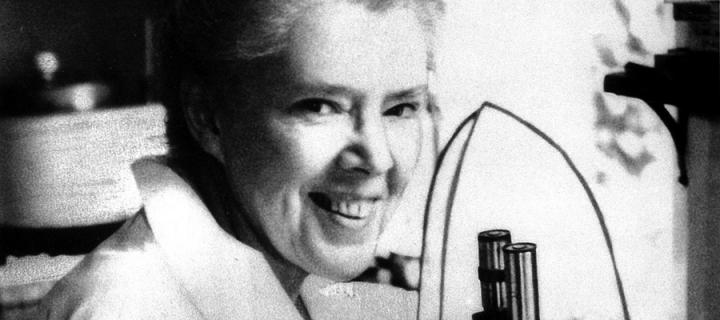Honor Fell (1900 - 1986)
Edinburgh Zoology graduate and long-time Director of Strangeways Research Laboratory.

Honor Fell was born in 1900 near Filey in Yorkshire and was the youngest of nine children. Her interest in biology is credited to her father who, during the Boer War, bought horses for the British Army in South Africa and was a farmer and minor landowner.
Her zoological instincts were honed at school in Oxford where records and family journals refer to her pet ferrets who lived in the garden of the school and were unwelcome guests at her sister Barbara’s wedding.
Edinburgh opportunity
In 1918 she attended Edinburgh University to read Zoology and was awarded a B.Sc. in 1923.
She stayed on to study for her PhD and it was during this period that Professor Francis Crew, then the Director at the Institute of Animal Breeding, recognised her potential and recommended that she spent time at Cambridge with Dr. T. S. P. Strangeways to learn the techniques of tissue culture.
In 1923 she was offered a place at the Strangeways Laboratory and she never returned to Edinburgh.
Funding science
Originally Strangeways was a small laboratory investigating rheumatoid arthritis. Honor became director in 1927 and by the time she stepped down in 1970, this unique organisation had an international reputation and was made up of 62 scientists and 29 technicians from all over the world.
Factors that contributed to the laboratory's expansion and success were Fell’s management of research grants from the Medical Research Council, her offer of study facilities to scientists who were refugees of the 2nd World War and the construction, in 1938, of a new wing funded by the Rockerfeller Foundation.
Fell was also responsible for securing Francis Crick his first research post there between 1947-9. Crick went on on to discover the structure of the DNA molecule in 1953 with James Watson.
Biological pioneer
Fells work in the development of organ cultures allowed scientists to examine the characteristics and reactions of cells without risking the cells of living human organs.
In an unpublished paper Honor Fell looks back on her career and assesses her impact,
Probably my main contribution to science has been the development and application to biomedical research of the organ culture technique
Throughout her life she used this technique of organ culture to examine the action of different agents upon the cells of bone and cartilage.
She collaborated with experimentally minded colleagues from a range of disciplines including radiobiologists, immunologists and biochemists and was still experimenting in her home laboratory in 1986 - the year of her death.

